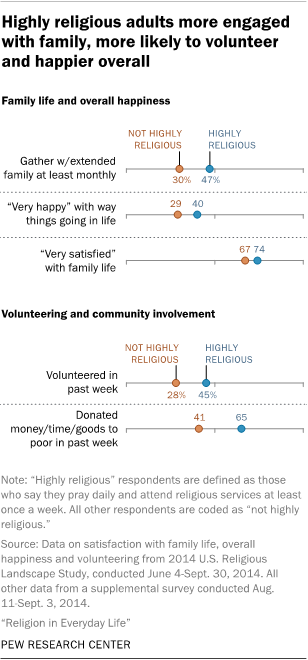Most theist claims are subjective and anecdotal, but many atheists willingly accept this sort of evidence in the social sciences all the time.
Can you say hypocrisy?

Social sciences is a misnomer
While surveys and other methods can produce generalisations about social constructs the social aspects of the region vary the results and are not repeatable
EXACTLY
Science remains constant no matter who does the observations or experiments
Can you say piousness?
Are you equally claiming that being and identity have no physical basis or correlates?
YES yes a thousand times yes
Being = physical existence
Identity = the ' who ' of somebody, has no physical presence and is wholly subjective varying between the person themselves and any other person
Also varying from moment to moment
iden·ti·ty
\ī-ˈden-tə-tē, ə-, -ˈde-nə-\
noun
- : who someone is : the name of a person
- : the qualities, beliefs, etc., that make a particular person or group different from others
Do constructs such as gender identity deserve the same derisive treatment?
Oh the old shame the claim card
Anybody can claim whatever they wish
If somebody wants to lay claim to any of the 50+ (as I understand the number of current choices available now) go ahead
If the person gets called out about their choice then they should be (but are frequently not) prepared to back up claim
I claim gender identity is not a physical entity
No shame in that
Observed brain activity is physical, and it correlates to thought
Nooooo
Activity is
NOT physical
If you believe brain activity is physical please show me (a quality photo will do) a sample of brain activity and (I will accept a guess) its dimensions and weight
But if you're claiming that thought is whole metaphysical, without physical correlates, then you must believe in free will...and are halfway to being a theist already.

Thought is a
PROCESS
While you are obtaining a photo of
ACTIVITY add a photo of
PROCESS please
Since neither exist I don't think I am over burdening you
Every day I wake up I thank god he made me a atheists

Exactly. They presume all evidence that they could accept would be physical...or are more agnostic than atheist, as leaving open the possibility of evidence for an existence logically requires leaving open the possibility for the existence itself. If they're really agnostic though, their adamant arguments don't really make sense.
Physical evidence would be the best
However I (and I think most atheists) would also accept an observation
Something like
"Hello ladies and gentlemen I am here today to show you god
He won't be attending as a physical being but as a demonstration
OK god take it away"
With that the demonstrator rises 50 metres into the air
Does a few laps over the heads of all those in the stadium
On the way he cures all the sick
The blind see again
The crippled become whole
Everybody gets a meal of their choice
That would do it for me
Can I leave it to you to organise?
Please send me tickets and a program well in advance so I can make travel plans
As I've asked several times in this thread, do atheists equally doubt being, identity, or other metaphysical entities?
What do you accept as evidence for these? Physical correlates?
Already answered but worth repeating
The English in the above is a bit wonky but
Being = physical - not a problem believing
identity, or other metaphysical entities?
What do you accept as evidence for these? Physical correlates
Identity - non physical - accept the
DEFINETION while understanding no physical evidence can be produced
Metaphysical entities - misnomer - no such animal
Physical correlates - my two neurones are arguing about this. Can you clarify please?
Here's a glimpse. I know I have a much greater potential than I currently exhibit, as I learn new information and skills daily. At this rate, I cannot imagine a hard limit to that potential, other than perhaps the time in which I have to develop it
True
and probably true for most of the Earth population
Potential (cracked record coming up) is not
PHYSICAL
True
and definately true for all of the Earth population
The time you have to add to your potential stops when you die (sorry to be a downer)
Solipsist might know themselves but it is a delusional style of thinking that is all that can be known
What do they think of their surroundings?
Bet they believe the food they eat
On a personal level I do know that the Universe will cease to exist when I die
Well I understand
NOW it will cease to exist for
ME
I understand
NOW it will continue to exist for those remaining alive for them
However when I die I will know a big fat
NOTHING
Because I am dead
Then how do you do math?

In the old days I would write down a number
Then another number
Perform a operation on the numbers (in my head if the numbers were small)
Arrive at a answer
Now use a calculator on my mobile phone
Ooooh do you think the
OPERATIONS I perform on the numbers have a physical existence?
They don't
I wish they did as it would make maths classes much more interesting
Kerenmansker
Believers (theists) recognize God as real regardless of evidentiary demonstration of His existence
Riddle me this
What sets god apart
from other fantastically beings
which can be conjured up by imagination
but are
NOT believed in?




